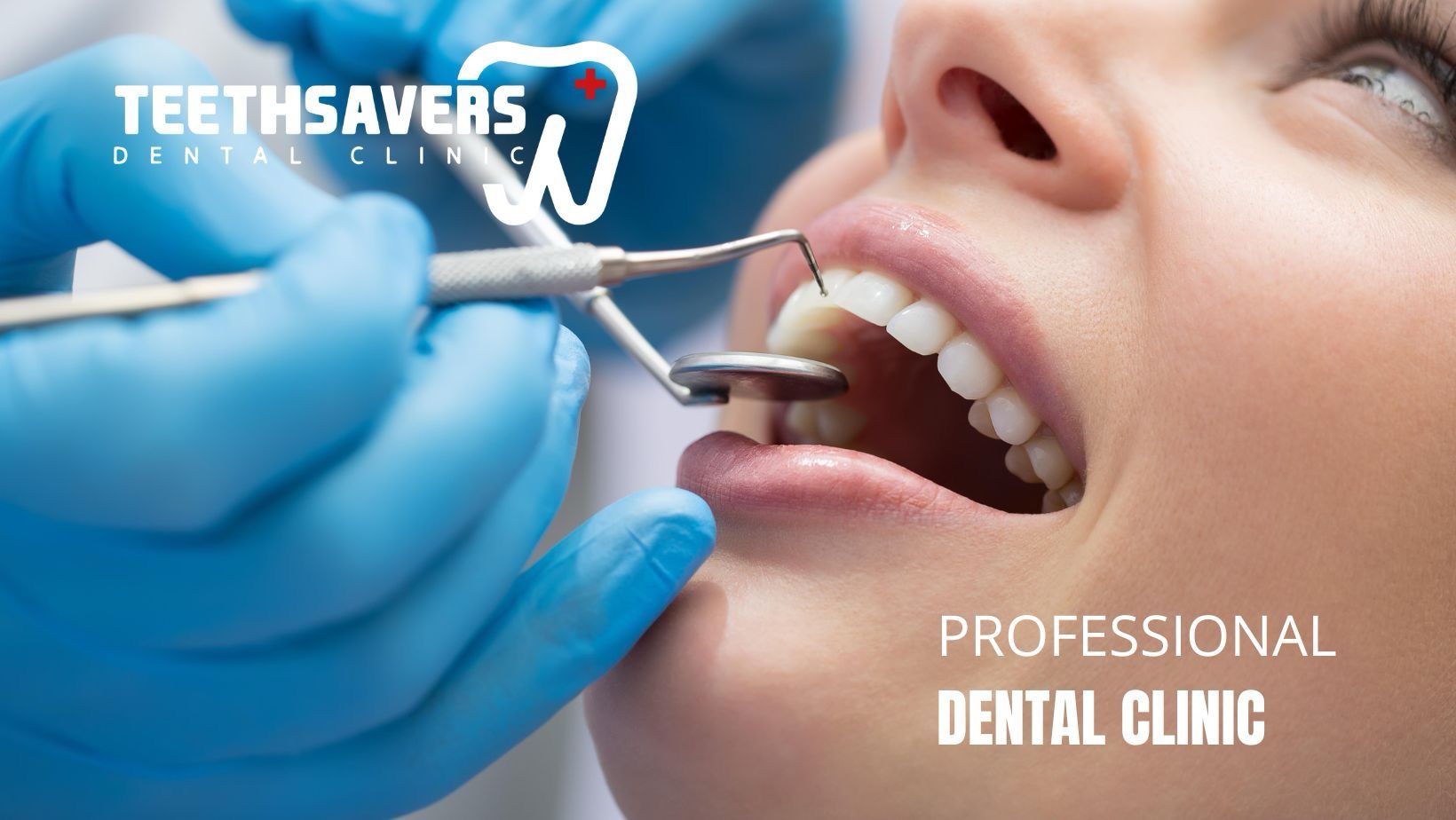The Surprising Connection between Numbers and Dental Health
Did you know that your dental health is connected to numbers? It may sound surprising, but it’s true! Research has uncovered a fascinating correlation between certain numbers and the overall state of our teeth and gums. So, what do these numbers mean for your dental health?
One key number to consider is the number of cavities you have. Cavities are a common dental issue that can lead to pain, discomfort, and even tooth loss if left untreated. The more cavities you have, the higher the likelihood of developing further oral health problems.
Another important number is your brushing and flossing frequency. Studies have shown that those who brush and floss their teeth regularly have better overall oral health. By keeping a consistent routine, you can lower the risk of developing gum disease, tooth decay, and other dental issues.
Your dental check-up schedule is also significant. Experts recommend visiting the dentist at least twice a year for routine check-ups and cleanings. These visits help detect any potential issues early on, preventing them from escalating into more serious problems.
So, remember, numbers play a role in more than just mathematics – they also have an impact on your dental health. Stay on top of these numbers to ensure a healthy and happy smile!
The link between numbers and dental health
One key number to consider is the number of cavities you have. Cavities are a common dental issue that can lead to pain, discomfort, and even tooth loss if left untreated. The more cavities you have, the higher the likelihood of developing further oral health problems.
Studies have shown that there is a direct link between the number of cavities a person has and their overall dental health. This connection is not surprising considering that cavities are typically caused by poor oral hygiene and a diet high in sugar. When we neglect to brush and floss regularly or consume excessive amounts of sugary foods and drinks, we create an environment in our mouths that is conducive to cavity formation.
The importance of oral hygiene
Another important number is your brushing and flossing frequency. Studies have shown that those who brush and floss their teeth regularly have better overall oral health. By keeping a consistent routine, you can lower the risk of developing gum disease, tooth decay, and other dental issues.
Brushing your teeth at least twice a day and flossing daily are essential habits for maintaining good oral hygiene. These practices help remove plaque, bacteria, and food particles that can accumulate on the teeth and gums. Failure to do so can lead to the formation of plaque, which can harden into tartar and cause gum inflammation, tooth decay, and bad breath.
Dental health statistics
According to the World Health Organization, dental health issues are a global concern. Around 3.5 billion people suffer from oral diseases, with tooth decay being the most prevalent condition. In fact, it is estimated that 2.3 billion people worldwide have dental caries in their permanent teeth.
These numbers highlight the importance of prioritizing dental health and taking preventive measures to avoid oral health problems. By understanding the connection between numbers and dental health, we can make informed decisions and take proactive steps to maintain a healthy smile.
How numbers can affect oral health
Numbers can significantly impact our oral health. For instance, the frequency of consuming sugary foods and drinks directly affects the health of our teeth. The more sugar we consume, the higher the risk of dental decay. Bacteria in our mouths feed on sugar and produce acids that attack tooth enamel, leading to cavities.
Additionally, the number of acidic foods and beverages we consume can also impact our oral health. Acidic substances can erode tooth enamel, making our teeth more susceptible to decay and sensitivity. It is crucial to limit the intake of acidic foods and beverages and maintain a balanced diet to protect our teeth.
The role of nutrition in dental health
Proper nutrition plays a vital role in maintaining good dental health. A diet rich in essential nutrients, such as vitamins A, C, and D, calcium, and phosphorus, is essential for strong teeth and gums. These nutrients help promote healthy tooth development, strengthen tooth enamel, and support gum health.
Including foods such as fruits, vegetables, dairy products, and lean proteins in our diet can provide the necessary nutrients for optimal dental health. Conversely, a diet high in processed foods, sugary snacks, and carbonated drinks can contribute to tooth decay and other dental problems.
The impact of sugar consumption on teeth
Sugar consumption has a significant impact on our teeth. When we consume sugary foods and beverages, the sugar interacts with the bacteria in our mouths, leading to the production of acids. These acids attack the enamel, the protective outer layer of our teeth, causing it to weaken and eventually form cavities.
It’s not just the amount of sugar consumed that matters but also the frequency and duration of exposure. Continuous snacking on sugary foods and sipping on sugary drinks throughout the day prolongs the exposure of our teeth to these harmful acids, increasing the risk of tooth decay.
To minimize the impact of sugar on our dental health, it is advisable to limit sugar consumption, especially from processed foods and drinks. Additionally, maintaining good oral hygiene practices, such as brushing and flossing, can help remove sugar residue from the teeth and prevent cavities.
The connection between dental health and overall well-being
Our dental health is closely linked to our overall well-being. Poor oral health can contribute to various systemic health issues, including cardiovascular disease, diabetes, respiratory infections, and pregnancy complications. This connection emphasizes the importance of maintaining good dental hygiene and seeking regular dental care.
When we neglect our dental health, the bacteria and inflammation in our mouths can enter the bloodstream and spread throughout the body, causing or exacerbating existing health conditions. By taking care of our teeth and gums, we can reduce the risk of developing these health problems and enjoy a healthier lifestyle.
Tips for maintaining good dental health
To maintain good dental health, here are some essential tips to follow:
1. Brush your teeth at least twice a day using a soft-bristled toothbrush and fluoride toothpaste. Make sure to brush all surfaces of your teeth and along the gumline.
2. Floss daily to remove plaque and food particles from between your teeth and along the gumline. Use a gentle back-and-forth motion and curve the floss around each tooth.
3. Limit your consumption of sugary foods and drinks. Opt for healthier alternatives such as fruits, vegetables, and water.
4. Avoid smoking and tobacco use, as they can contribute to gum disease, tooth discoloration, and oral cancer.
5. Stay hydrated by drinking plenty of water throughout the day. Water helps rinse away food particles and maintain saliva production, which is essential for oral health.
6. Visit your dentist at least twice a year for routine check-ups and cleanings. Regular dental visits allow your dentist to detect and address any dental issues early on.
7. Wear a mouthguard if you participate in sports or engage in teeth-grinding activities to protect your teeth from injury.
The importance of regular dental check-ups
Regular dental check-ups play a crucial role in maintaining good dental health. During these visits, your dentist will examine your teeth, gums, and mouth for any signs of dental problems. They may also perform professional cleanings to remove plaque and tartar buildup.
Early detection of dental issues is key to preventing them from progressing into more serious problems. Your dentist can identify cavities, gum disease, oral cancer, and other dental conditions in their early stages when they are easier and less expensive to treat.
By attending regular dental check-ups, you are taking a proactive approach to your dental health and ensuring that any potential issues are addressed promptly. Your dentist can provide personalized recommendations and advice to help you maintain a healthy and happy smile.
Conclusion: Taking control of your dental health
Numbers play a role in more than just mathematics – they also have an impact on your dental health. From the number of cavities you have to the frequency of brushing, flossing, and dental check-ups, these numbers can provide insights into the state of your oral health.
By understanding the connection between numbers and dental health, you can take control of your oral hygiene and make informed decisions. Prioritize good oral hygiene practices, maintain a balanced diet, limit sugar consumption, and seek regular dental care to ensure a healthy and happy smile for years to come.
Remember, the numbers don’t lie when it comes to dental health. Take charge of your oral well-being, and let the numbers work in your favor for a lifetime of beautiful smiles and optimal dental health.



